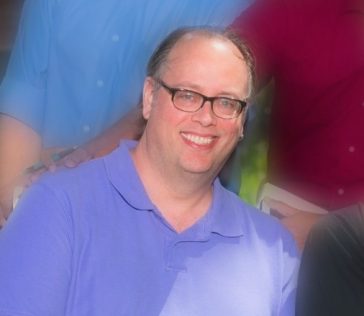 When Jeff Mosier plunged into his new environmental beat at The Dallas Morning News, he had 23-solid years of reporting under his belt. But even a veteran journalist can feel “a little lost” in new territory.
When Jeff Mosier plunged into his new environmental beat at The Dallas Morning News, he had 23-solid years of reporting under his belt. But even a veteran journalist can feel “a little lost” in new territory.
“I could navigate my way around police departments, crime records, courtrooms, trials, and government, but I didn’t have a science background and I saw that as one of my weaknesses,” said Mosier, an alumnus of Metcalf’s 2016 Annual Science Immersion Workshop for Journalists. “Obviously science is one of the most critical components of the environment beat.”
That’s when his editor encouraged him to apply for a Metcalf fellowship. “She said ‘it sounds perfect for you, but you have to jump on it because the deadline is coming up.’”
He did, and one of the tools Mosier still uses today from his Metcalf experience is the ability to effectively distill relevant information from scientific journal articles for news audiences. The workshop’s science translation sessions matched journalists with scientists who guided them through scientific papers and showed them how to quickly identify the main ideas while on deadline.
“Before the workshop science journal articles seemed absolutely impenetrable,” said Mosier. “I walked away from the workshop far more comfortable diving into the science and figuring out ways to understand it on a layman’s level.”
A graduate of the University of Texas with a Bachelor’s degree in journalism, Mosier wrote for a small Texas newspaper before landing a job as a reporter at The Dallas Morning News in 1994.
After years of combing through municipal budgets, bond ratings, crime, and more on general assignment, and then ascending to the environmental desk, Mosier added energy issues to his beat earlier this year. Recent stories include the impact of tax reform legislation on $11 billion worth of wind energy projects and the decline of coal as an energy source.
As Texas continues to recover from Hurricane Harvey’s destruction, Mosier talked to researchers about the link between climate change and Hurricane Harvey’s extreme rain. “The tougher part of climate change coverage is trying to figure out the Texas-specific stories,” he said.
Mosier expressed an interest in exploring the state of flood plain maps as Texas adapts to a changing climate. “With Hurricane Harvey we saw flood plain maps that were totally inaccurate in some cases,” he said. “Even when you don’t have 50 inches of rain, there are still areas here that should be in the flood plain, but the maps don’t indicate this because they are so outdated.”
As Mosier continues to put his Metcalf skills to work covering environment and energy issues, he has this advice for journalists considering Metcalf’s Annual Workshop: “Do everything you can to get in because it’s phenomenal. No matter how far along you are in your environmental reporting career, there’s no way you can leave the workshop without a great deal of new knowledge.”
“I found this program to be incredibly valuable,” he added. “Metcalf gave me a road map to environmental reporting.”
Read More Alumni Profiles